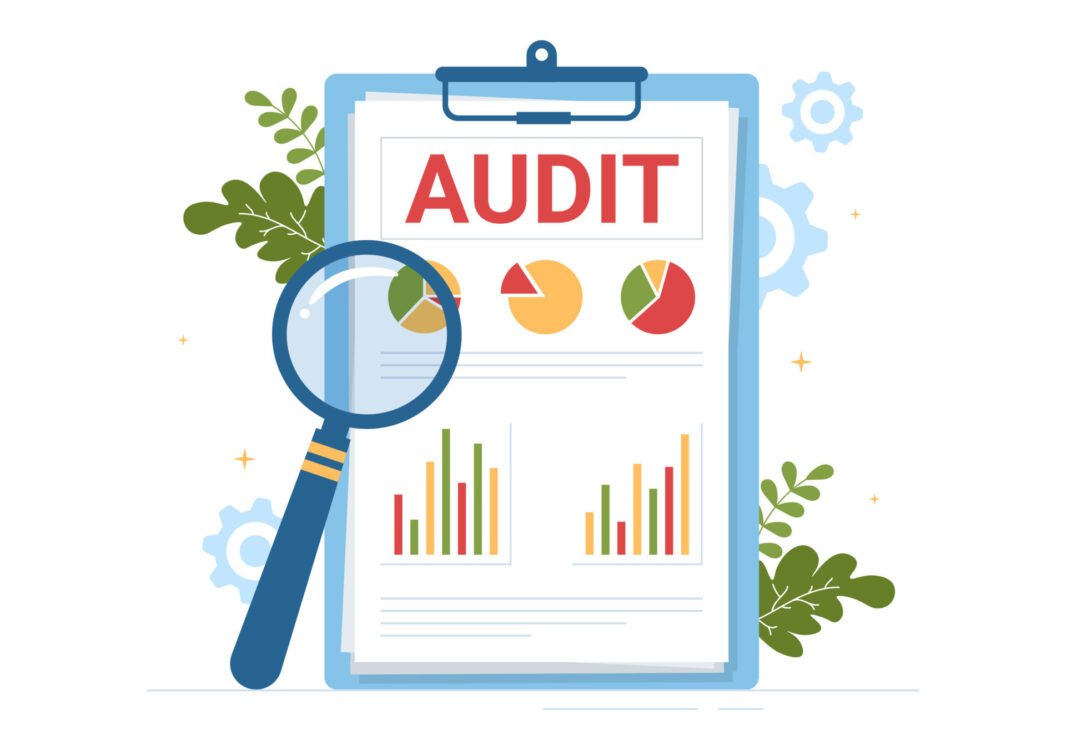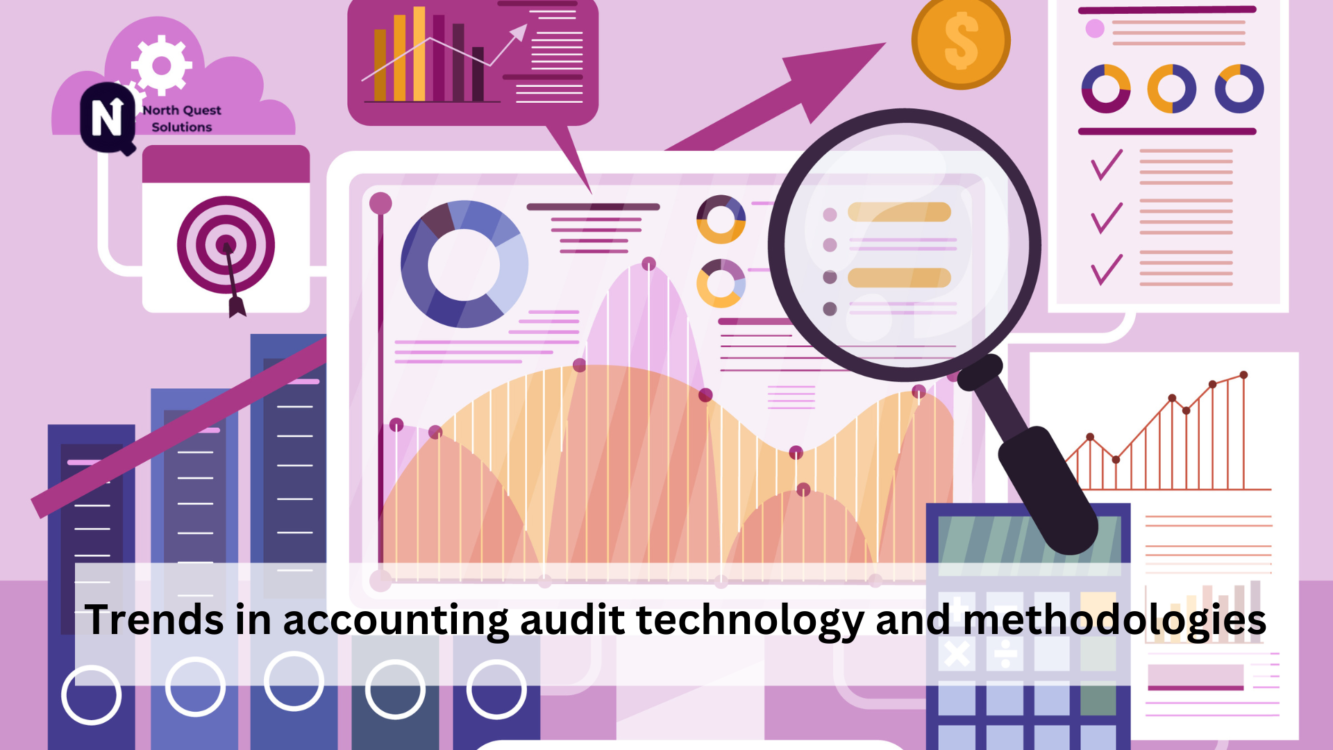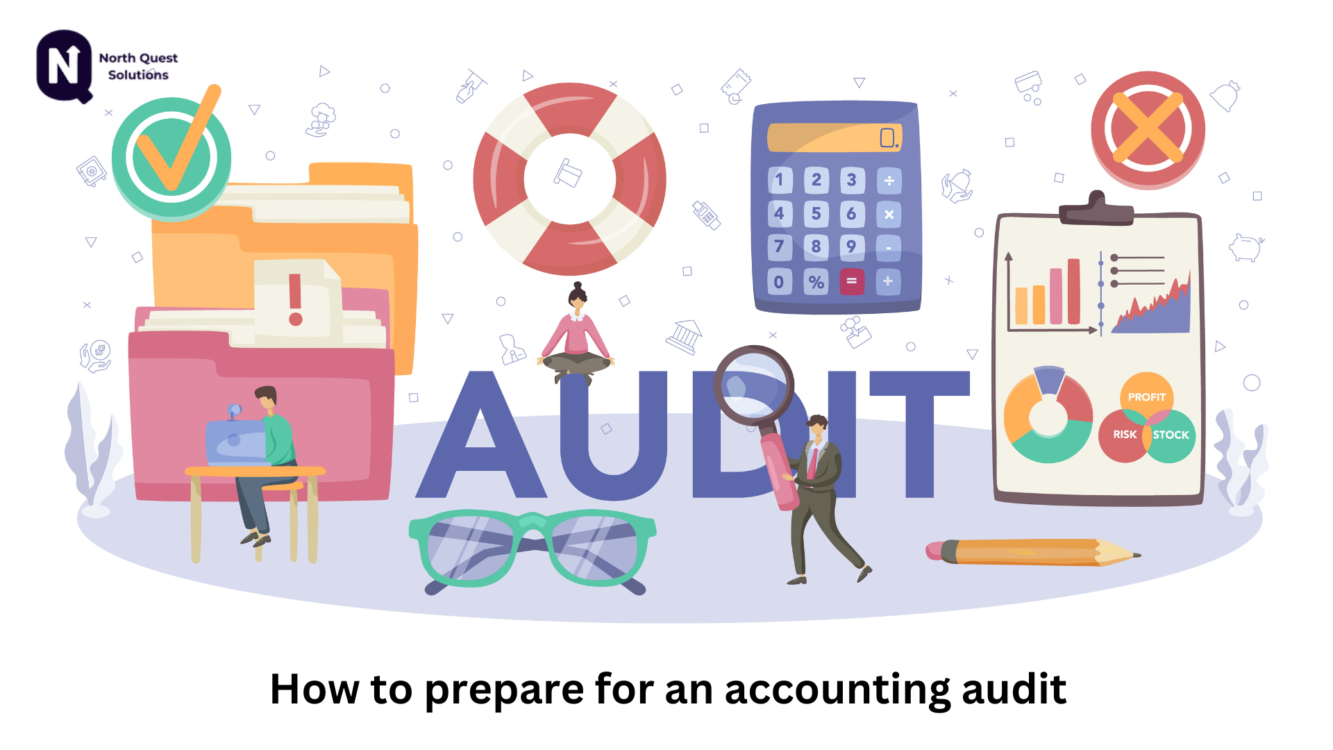Tailored Audit Solutions: 4 Stages of Growth Explained
The journey from a small startup to a fully scaled company is exciting — but it’s also full of financial and operational complexities. Each growth stage comes with unique challenges, and one area that often gets overlooked is auditing. Whether you’re just getting your business off the ground or managing a thriving mid-sized enterprise, tailored audit solutions ensure your financial health, compliance, and investor confidence remain intact. In this guide, we’ll explore how audit needs evolve through different business stages, and how you can implement the right solutions at each step. Why One-Size-Fits-All Doesn’t Work in Auditing Many business owners assume that audits are the same for every company, but that’s far from the truth. The requirements, scope, and complexity of an audit depend on factors like: Business size and revenue Industry-specific compliance requirements Investor and lender expectations Internal process maturity All tailored audit solutions should comply with AICPA auditing standards to maintain professional integrity. A startup’s needs differ vastly from a scaleup’s — which is where tailored audit solutions come in. Stage 1: Startups — Building a Strong Financial Foundation Audit Focus:At this stage, formal audits may not be legally required, but early adoption of financial review processes builds credibility. Tailored Audit Solutions for Startups: Bookkeeping Review Audits – Ensures accurate records for tax filings. Compliance Checkups – Basic checks for state and federal requirements. Pre-Investment Financial Reviews – Helps attract angel investors and venture capital. Software Recommendation: Cloud-based tools like QuickBooks Online + entry-level audit checklists. Why It Matters:Investors want transparency. Even without a legal mandate, early audits signal professionalism and reduce the risk of future issues. Stage 2: Emerging Growth — Preparing for Bigger Stakes Audit Focus:As revenue grows, so does operational complexity. Lenders, investors, and regulators will expect stronger financial oversight. Tailored Audit Solutions for Emerging Growth Businesses: Limited-Scope Audits – Focus on high-risk areas like cash flow and inventory. GAAP Compliance Audits – Ensures adherence to U.S. Generally Accepted Accounting Principles. Internal Control Assessments – Identifies weaknesses before they become costly. Software Recommendation: Audit Board or CCH ProSystem fox for structured engagements. Why It Matters:Mistakes at this stage can scare off potential Series A/B investors or cause tax and compliance headaches. Stage 3: Scaleups — Complex Operations, Higher Risks Audit Focus:With multiple revenue streams, large teams, and possibly international operations, scaleups face more intense scrutiny. Tailored Audit Solutions for Scaleups: Full External Financial Audits – Annual independent verification of financial statements. SOX Compliance Audits – If publicly traded or preparing for IPO. IT & Cybersecurity Audits – Critical for tech-driven businesses. Operational Audits – Reviews efficiency and cost-effectiveness of business processes. Software Recommendation: CaseWare IDEA or TeamMate+ Audit for enterprise-level analytics. Why It Matters:Scaling introduces risk. Thorough, tailored audits maintain trust with stakeholders, especially when preparing for IPO, mergers, or acquisitions. Stage 4: Continuous Growth — Maintaining Excellence Audit Focus:After reaching scale, the challenge shifts from growth to sustainability and efficiency. Tailored Audit Solutions for Mature Businesses: Continuous Auditing with AI – Ongoing risk detection through automated systems. Regulatory Audits – Keeps the company compliant with evolving laws. Sustainability Audits – ESG-focused reviews to meet investor and public expectations. Software Recommendation: Mind Bridge Ai Auditor for continuous monitoring. Why It Matters:Consistency in audit practices protects reputation, avoids fines, and improves decision-making. The Benefits of Tailored Audit Solutions at Every Stage No matter your growth phase, customized audits: Improve decision-making with accurate financial data Reduce risk through early issue detection Increase investor and lender confidence Ensure compliance with U.S. laws and industry standards Save time with relevant, stage-appropriate tools How to Choose the Right Tailored Audit Solution for Your Stage Assess Your Current Needs – Revenue, team size, compliance requirements. Identify High-Risk Areas – Cash management, inventory, IT security. Pick the Right Tools – Cloud vs. desktop, automation features, integration options. Work with Experienced Auditors – Choose professionals who understand your industry and stage. Plan for the Next Stage – Implement scalable solutions that grow with your business. Final Thoughts The audit strategy that works for a 5-person startup won’t suit a 500-person scaleup. By adopting tailored audit solutions for each growth stage, you’ll not only stay compliant but also position your business for long-term success. Think of audits as more than a regulatory checkbox — they’re a growth tool, an investor magnet, and a safeguard for your company’s future.
Read MoreUnlocking the Future: Trends in Accounting Audit Technology and Methodologies
In a state-of-the-art unexpectedly evolving commercial enterprise panorama, the sector of accounting audit era and methodologies is experiencing groundbreaking modifications. With the advent of advanced technologies and progressive methodologies, auditors are empowered to beautify the performance, accuracy, and reliability of their practices. This article delves into the emerging tendencies shaping the destiny of the accounting audit era and methodologies, presenting insights into the dynamic nature of the industry. Navigating the Digital Era: Leveraging Technology in Auditing In the digital age, technology serves as a cornerstone for revolutionizing accounting audit practices. From automatic records analysis to synthetic intelligence (AI)–push auditing tools, technological improvements are streamlining processes and augmenting auditors’ abilities. Cloud-based total audit structures, equipped with sturdy security functions, facilitate seamless collaboration and information control, transcending geographical boundaries. Moreover, blockchain generation is gaining traction for its ability to decorate transparency and integrity in economic audits, ensuring the immutability of transaction facts. Harnessing Data Analytics for Enhanced Insights Data analytics emerges as a pivotal trend in revolutionizing accounting audit methodologies. By harnessing the electricity of large records and predictive analytics, auditors can glean treasured insights from widespread datasets, enabling proactive risk identity and mitigation techniques. Advanced analytics gear empowers auditors to detect anomalies, traits, and patterns with unheard-of precision, facilitating greater informed choice-making strategies. Moreover, gadget-getting-to-know algorithms enable non-stop tracking of monetary transactions, bolstering audit efficiency and efficacy. Embracing Automation for Operational Efficiency Automation emerges as a driving pressure at the back of the evolution of accounting audit methodologies, permitting auditors to streamline repetitive obligations and focus on high-value activities. Robotic process automation (RPA) technologies automate guide processes, consisting of data access and reconciliation, decreasing the threat of human blunders and improving audit accuracy. Additionally, cognitive automation tools leverage natural language processing (NLP) abilities to extract insights from unstructured information, expediting audit tactics and improving compliance with regulatory requirements. Augmented Reality: Transforming Audit Fieldwork The integration of augmented truth (AR) technology is reshaping conventional audit fieldwork, supplying auditors with immersive experiences and real-time insights. AR-enabled audit applications facilitate on-website inspections and asset verifications, enhancing audit comprehensiveness and accuracy. Auditors can overlay virtual records onto physical environments, allowing them to visualize complex audit records in a spatial context. Furthermore, AR-pushed far-off help functionalities empower auditors to collaborate seamlessly and troubleshoot troubles in actual time, transcending geographical constraints. Enhancing Cybersecurity Resilience in Auditing With the proliferation of cyber threats, cybersecurity resilience emerges as an important vital for accounting audit generation and methodologies. Auditors are increasingly prioritizing cybersecurity measures to guard touchy financial information and mitigate risks of information breaches. Implementing robust cybersecurity protocols, inclusive of encryption algorithms and multi-thing authentication mechanisms, fortifies audit infrastructure against malicious cyber intrusions. Moreover, continuous tracking and chance intelligence analytics enable auditors to preemptively perceive and mitigate rising cyber threats, ensuring the integrity and confidentiality of audit statistics. Navigating Regulatory Compliance Challenges In a more and more stringent regulatory environment, compliance with evolving audit standards poses good-sized challenges for auditors. Keeping tempo with regulatory adjustments and making sure adherence to hooked-up auditing frameworks necessitates continuous vigilance and adaptableness. Audit generation solutions prepared with regulatory compliance modules provide auditors with actual-time updates on regulatory necessities and facilitate seamless integration of compliance measures into audit approaches. Furthermore, leveraging regulatory compliance analytics enables auditors to assess the effectiveness of internal controls and identify areas for improvement, ensuring compliance with regulatory mandates. Empowering Auditors Through Continuous Learning As accounting audit technology and methodologies evolve, continuous getting to know emerges as a cornerstone for auditors’ professional improvement and flexibility. Investing in ongoing training and upskilling initiatives equips auditors with the knowledge and skills to leverage emerging technologies efficiently. Professional certification applications, workshops, and online publications permit auditors to stay abreast of enterprise traits, quality practices, and regulatory traits. By fostering a lifestyle of non-stop gaining knowledge of and innovation, businesses empower auditors to navigate the complexities of the current audit landscape with self-assurance and proficiency. Conclusion: As the accounting audit landscape continues to evolve, embracing emerging trends in technology and methodologies is imperative for auditors to thrive in the digital era. By leveraging advanced technologies such as data analytics, automation, and augmented reality, auditors can enhance audit quality, efficiency, and effectiveness. Moreover, prioritizing cybersecurity resilience and regulatory compliance ensures the integrity and credibility of audit processes. With a commitment to continuous learning and innovation, auditors can navigate the complexities of the modern audit landscape with confidence and proficiency, unlocking new opportunities for growth and excellence. More information:- North Quest Solutions
Read MoreHow to Prepare for an Accounting Audit: A Comprehensive Guide
In the arena of finance and commercial enterprise, the term “audit” often strikes fear into the hearts of many. However, with proper preparation and know-how, an accounting audit does not have to be a daunting experience. Whether you’re a small enterprise proprietor or an person managing non-public finances, knowing a way to put together for an accounting audit is vital. In this guide, we’ll stroll you through the steps to ensure you are prepared whilst the auditors come knocking. Understanding Accounting Audits An accounting audit is an independent examination of financial facts of any entity, whether it’s a organization, enterprise, or person. The motive is to ensure accuracy and compliance with relevant legal guidelines and guidelines. Importance of Preparation Preparation is key to a a success audit. It reduces strain, saves time, and helps in imparting a good photo to auditors. Gathering Financial Documents Start by means of gathering all relevant financial files which include bank statements, invoices, receipts, ledgers, and tax returns. Having the whole thing in one area streamlines the system. Organizing Financial Records Organize the documents systematically. Use classes like earnings, fees, belongings, and liabilities. This makes it less complicated for auditors to check and ensures not anything is overlooked. Reviewing Internal Controls Assess your inner controls to discover any weaknesses or areas needing development. Strong internal controls limit the danger of mistakes and fraud, instilling confidence in auditors. Engaging Professional Help Consider hiring accounting experts or consultants experienced in audit practise. They can offer precious insights and make sure compliance with auditing requirements. Conducting Pre-Audit Reconciliation Before the audit, reconcile bills to make sure balances match throughout exceptional monetary statements. Any discrepancies have to be investigated and resolved promptly. Addressing Potential Issues Proactively address any capability problems or discrepancies found during the education section. Document the stairs taken to rectify these problems, demonstrating transparency to auditors. Communication with Auditors Maintain open and obvious communication with auditors in the course of the system. Address any questions or worries they may have directly and correctly. Post-Audit Review and Improvements After the audit, behavior a radical evaluate of the technique. Identify regions for improvement and put into effect important modifications to reinforce internal controls and streamline destiny audits. Conclusion Preparing for an accounting audit would not ought to be overwhelming. By expertise the procedure, staying organized, and searching for expert assistance while needed, you could navigate the audit with confidence and simplicity. More information :- North Quest Solutions
Read More


